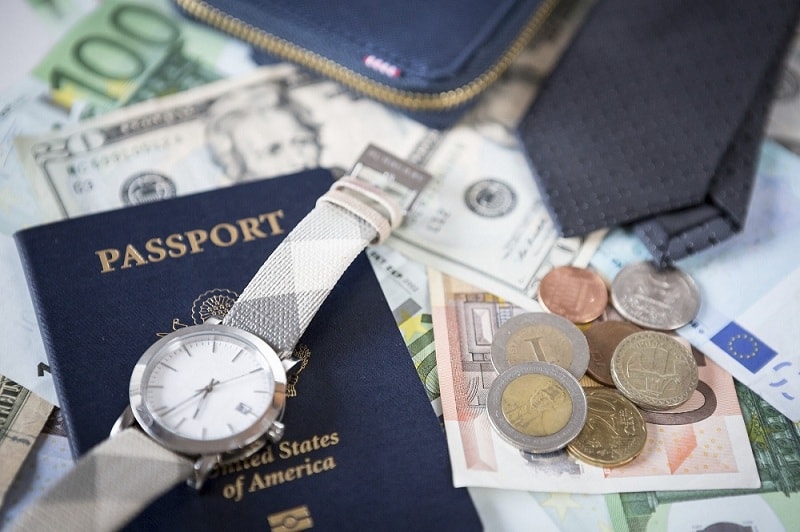Your small business ain’t so small anymore! At first you were happy to keep your small business small. You knew and liked your employees and your customers. You got better and better at what you do, and although those early years were a pretty steep learning curve with a combination of hard work, inventiveness, diligence and marketing savvy you kept your profit margins healthy, your cash flow liquid, and your business healthy. The trouble was that you were almost a victim of your own success.
As you got better and better at what you do, demand rose to the point where you were unable to create the supply to meet it. So what did you do? You expanded. But you did it right! Very often businesses will try to expand too far, too fast. They are unable to make the financial and logistical preparations to facilitate long terms sustainable growth and end up tripping over themselves. You thought long and hard about going into business before you started trading and you planned your growth in the same careful and methodical way. You scaled your company up incrementally and strategically, ensuring that you were able to meet the rising demand without compromising on the quality of service or the little personal flourishes that make your business the success that it is.
Going Global
Now, however, having conquered the local market and the international market, you have a taste for expansion and have your sights set on the foreign market. Taking your operation overseas can have some pretty huge advantages. It may insulate your business from the economic fluctuations of the domestic market. It can add significant value to your brand, letting customers know that you’ve achieved a measure of success that can’t be contained to one country. It can also give you access to a huge pool of overseas talent whose ambition, ideas, skills and experience could take your business to the next level. So…You’re looking to travel overseas to make new connections, scout out prospective premises, meet and recruit potential employees or all of the above. This is a very exciting time, but it also comes with some very specific risks. Going global represents a substantial investment and while your business is doing well, you know that all it takes is a temporary lapse in liquidity for the whole operation to come tumbling down like a house of cards. You know that you need to keep a close eye on the purse strings for your international visits. You didn’t achieve success in business through a history of reckless spending, and you know that a big key to success will be carefully managing your overheads as you travel overseas. But you’re also aware that foreign markets may have significant lingual, cultural and operational differences to your own. In order for your trip to be a success, you just not only save money, but save face. You must ensure that you make the best possible impression upon overseas investors or prospective employees you’ll need to demonstrate an understanding of and sensitivity to your potential new market. Here you will find some tips that will help you save money and save face as you fly overseas with a view to making your operation go international.
Preparation Is Everything
“Failing to prepare is preparing to fail”. It’s an age old adage that can be applied to pretty much everything from education to athletic pursuits, but it’s particularly true of business. In order to make a success of your reconnaissance trips, you will need to sew the seeds of success months in advance if flying out.
Flights

One of the most substantial ways to make savings is in booking your flights. If you’re accustomed to flying domestically you likely know that you get the best deals by booking in advance. When travelling internationally, however, you can’t expect to make the best savings unless you book really far in advance. For domestic flights, 57 days is usually enough time in advance to get a great deal. When travelling internationally, however, you will need to book at least 170 days in advance if you expect to make substantial savings.
Keep a Finger on the Pulse
You must also be sure to keep a close eye on what’s going on politically, socially and topographically in your chosen destination. If you will be traveling to Asia, for example, you may face a greater risk of natural disasters like earthquakes or volcanoes than you might travelling somewhere like Western Europe. If you will be travelling to a region like the Middle East, South America or North Africa with potential for political unrest this may also curtail your business plans in the short term. It’s worth learning at least a smattering of your destination’s language and cultures as a sign of respect and goodwill. Nobody wants to do business with an ignoramus.
Papers, Please!
Needless to say you should also ensure that you have all of the right documents prepared before flying out. Your passport is a no-brainer but some countries may require you to get a working visa when flying out for business purposes. Getting all of your documentation in order well in advance will save you money on rushed processing and postal fees while also ensuring that you are not embarrassed at the airport gate.
Spend Smart

It goes without saying that you will keep an eye on your expenditure when travelling abroad. However, it’s also worth considering not just what you spend but how you will spend when overseas. You may be used to exchanging all of your currency prior to flying when travelling as a tourist. But this may not be the best option when travelling for business purposes. Those who fly regularly for business tend to use credit cards as these offer better and more consistent rates than exchanging credit in advance. Some cards, however, may charge hidden fees for using your card abroad so make sure you don’t leave the country without looking into cards with no foreign transaction fees. Not only can using cards offer you favorable rates, they can also offer extras that may be of value to you as a business traveller. You may be able to get air miles, hotel discounts or even deals on food while you’re away.
Eat Smart
Obviously while you’re away you will need to eat. Not only is this essential for you to stay energized in this crucial time, it’s also a great way to sample the local culture through their cuisine. But be smart when weighing up your eating options. Avoid eating at the hotel or ordering room service as these usually represent an unnecessary expense. If you will be travelling to somewhere like India where the local cuisine is known to have a… disruptive effect on the Western palate, it’s definitely worth playing safe when you order, not to mention packing some loperamide to keep you stomach stable. The last thing you want is to have to dash to the bathroom every 5 minutes in your business meeting.
If you will be taking investors, prospective clients or potential employees out to business lunches, it’s worth asking your hotel staff to recommend somewhere pleasant but reasonably priced. You want to make a big impression, sure, but you don’t want to spend a king’s ransom in doing so. You should also ensure that you’re aware of the dining etiquette of your chosen country as this is an area in which unknowing westerners often cause unwitting offense. In some cultures, it’s considered perfectly acceptable to talk business while you eat, while in others it’s considered bad form to engage in anything but small talk until the meal has ended. In places like Japan, especially, it is important to observe local etiquette when eating. While most cultures are quite forgiving of unintended faux pas from foreign visitors, this can taint the all important impression you make upon them.
Staying in Touch
Needless to say you will be taking your cell phone with you and it’s a good idea to take a good look at what charges your network provider will impose upon you when travelling abroad. Some networks have roaming data usage and call charges which may seem fairly innocuous but since you’ll be conducting potentially long and complex conversations over the phone, you’ll need to take steps to make savings. Many cafes, bars, hotels and public areas will have free Wifi and your hotel will likely have a business center that’s free to use (although you may need to book this in advance). Use these wherever possible and conduct conversations over iMessage or WhatsApp or video chat platforms like Skype or FaceTime wherever possible rather than using your cell phone.
If you manage your overhead costs and make sure that you’re as well prepared as possible you will make a great impression and facilitate your overseas growth without maxing out on unnecessary overheads which could compromise your liquidity and hobble your business.






Royal Recruiting
June 2, 2018Some great advice here Daniela. We are getting ready to expand our services into the overseas market at the beginning of next year, and every one of us has mixed feelings. So much to think about!
Hermione
June 6, 2018I began researching the overseas market some time ago. Though I am still to finalize details, I think the key to success here is, as you rightly say Daniela, preparation. I want to be sure that I am confident with all the finer details before I take this next step.
Hamilton’s
June 8, 2018We began trading overseas a few months back and so far, so good. Our advice is to make use of Skype and Slack, for example, as much as possible therefore keeping flights to a minimum.
Daniela Bucatele
June 8, 2018It can be a big move, but it can also be one of the most exciting steps you may take as a business. Yes, Skype is an excellent tool for visually communicating when you can’t be there in person!